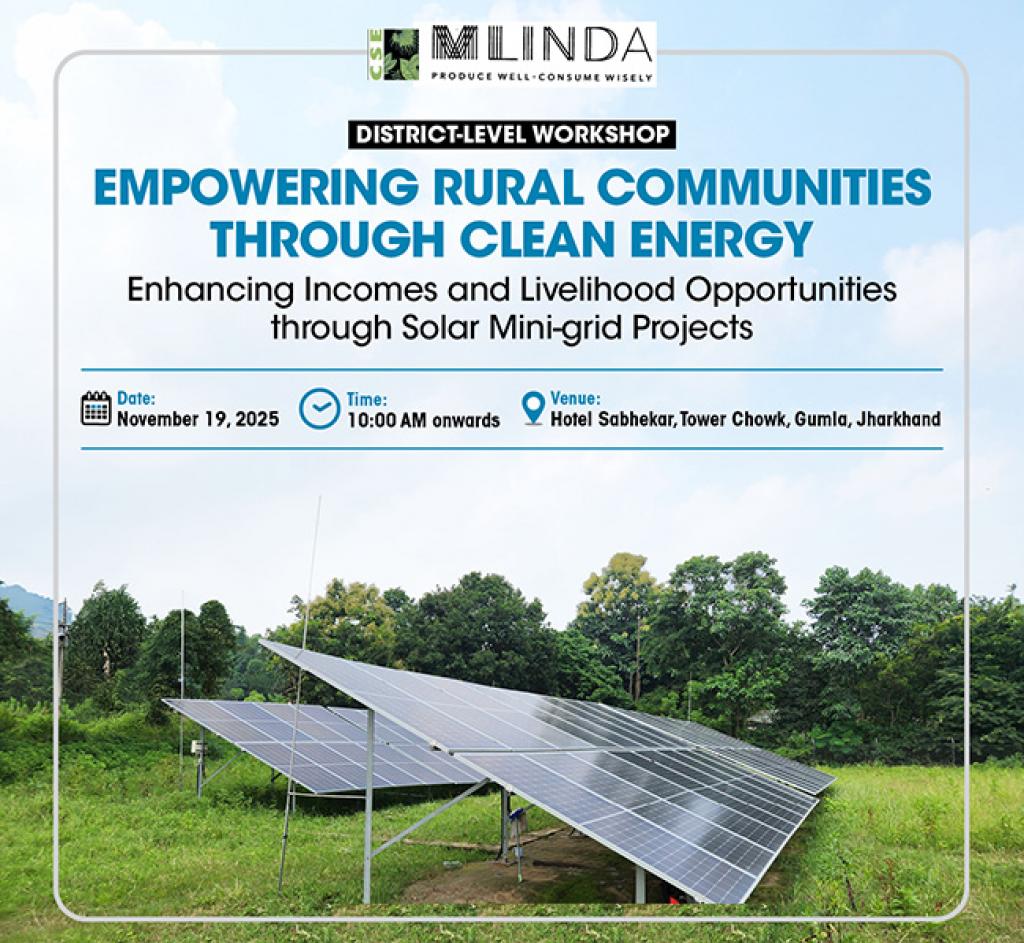Empowering Rural Communities Through Clean Energy
Decentralised renewable energy (DRE) systems have immense potential to transform rural livelihoods by enabling income generation and community development. Jharkhand’s State Solar Policy 2022 outlines an ambitious target of 110 MW through mini and micro grids and 50 MW for solar livelihood applications — with the vision of solarising 1,000 model villages. As per official data, solar mini and micro grids have already been deployed in 548 villages, reaching around 29,450 households with a total installed capacity exceeding 10 MW.
However, persistent challenges in infrastructure development, community capacity building, financing access and operations and maintenance have put roadblocks — limiting the translation of policy intent into sustained livelihood transformation. A combination of measures is needed to surmount these, ranging from strengthening decentralised grid infrastructure to fostering community ownership.
Centre for Science and Environment (CSE) is collaborating with Mlinda Foundation to jointly organise a district level workshop in Gumla, Jharkhand, to discuss these issues – the focus will be on DRE-based livelihoods, infrastructure challenges, and strategies for enhancing income through mini-grid projects. The full-day workshop, followed by a site visit, will bring together energy committee members, DRE consumers, panchayat representatives, government officials, and self-help group members from both operational and upcoming mini-grid areas
FOR MORE INFORMATION, PLEASE CONTACT:
BINIT DAS
Programme Manager
Renewable Energy Unit CSE
binit.das@cseindia.org
+91 80933 26269
PRANAV BHARTI SAH
Manager Finance & Operations
Mlinda Foundation (MPL)
bharti@mlinda.org
+91 87896 1388
| Flyer | |
 |
|
| Download Flyer | |
Share this article